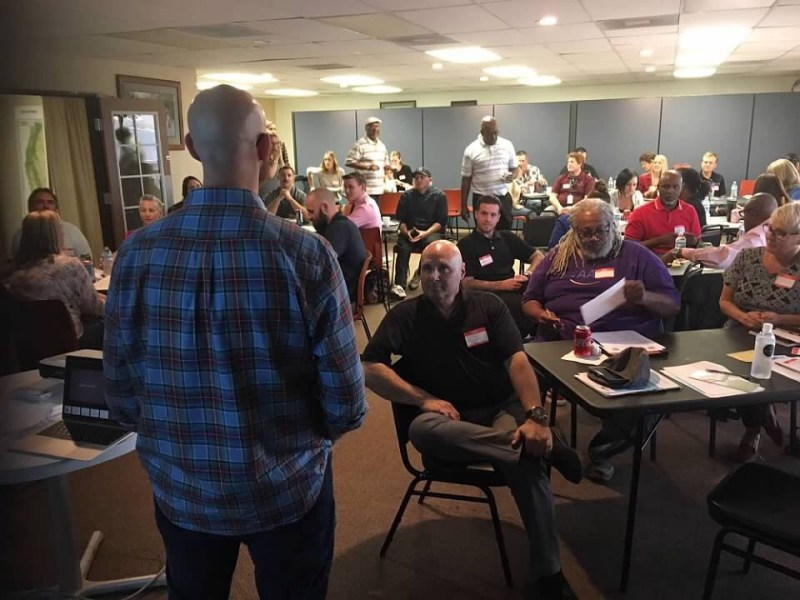
I’m a person in long term recovery. For me, that means I haven’t had a drink, a drug, or placed a bet since February 16, 2013. Recovery has brought countless gifts to my life. Friends and family. A second chance at fatherhood. Beautiful relationships past, present, and future. The opportunity to engage in work I care about deeply.
But the most significant gift of recovery is one I get every day — the reflection I see in the mirror. I see today a person who does what they can do be of use to others. Who tries his best to be honest and open minded. Who doesn’t take things from other people, and who tries to right the inevitable wrongs that transpire in life. I’m proud of my reflection — a sentiment that, prior to recovery, was absent in my life.
In traveling our country, I’ve heard the voices of many others who, like me, have lived experience with a substance use disorder, and have now committed themselves to saving lives and helping their communities. Some are advocates, visiting their legislatures, or trekking to Washington D.C. to advocate for changes in public policy. Others are delivering critical recovery support services. Still more have found positions in the areas of public health, harm reduction, treatment, or prevention, where their personal experience greatly enhances their ability to serve others.
Largely due to the tremendous work produced by these directly impacted leaders, we have a sound roadmap to what we must do in order to combat the addiction health crisis. We know what works to save lives. Peer to peer recovery support, evidence based prevention practices, harm reduction strategies, and public health approaches supported by empirical evidence.
So what holds us back? What may stand in the way of all of us contributing to saving a million lives over the next two decades?
We may know what works — but we must get these services to a far wider group of individuals. This is the primary focus of The Communities Project, a national initiative with the mission of saving a million lives from substance use related deaths over the next two decades. We will save lives by investing in the community leadership of people with lived experience and those working in the field who lead key addiction-focused initiatives in their communities. By investing in leadership through training and coaching, the capacity of local leaders increases. As capacity increases, output of critical services will rise and more effective advocacy campaigns will be waged. And as a direct result of community leadership investments, the number of lives saved will continue to climb.
Capacity is inherently a question of leadership. When we invest in directly impacted leaders, they begin to expand their capacity — whether through an increased ability to empower others, improved fundraising capability, or a simple understanding of what blocks one from realizing the results they wish to achieve. As their capacity expands, the output of services increases. Advocacy campaigns improve and attain stronger results. New partnerships are formed. And for each improvement we make in these areas, more lives can and will be saved.
The Communities Project has visited 55 different communities in 28 states over the past three years, with over 1,800 individuals having gone through our training program. These individuals have gone on to open recovery community centers, expand their peer to peer support programs, launched new initiatives to support families, opened new recovery community centers, and much more. And each of these accomplishments was attained at the local level, by local leaders who are committed to this cause. We know this model works to expand capacity, increase outputs, and save lives.

The Communities Project has two focuses — you, and your community. What are you doing that’s working? Where are you struggling? And what do you want to accomplish that you have not yet done?
By investing in you, we know that together, we can save a million lives over the next two decades.




